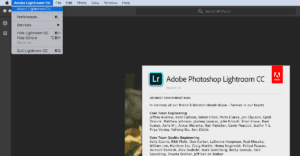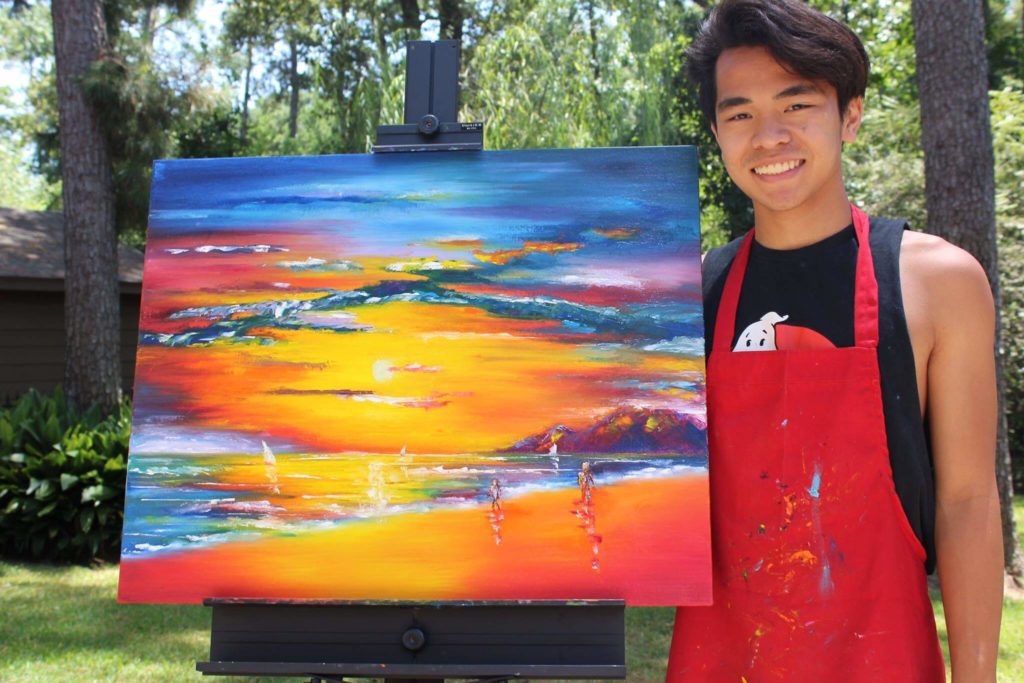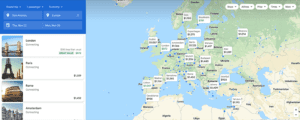
How to copy and paste brush settings | Lightroom CC 2019
With the release of Adobe’s new Lightroom CC, it’s become quite frustrating trying to navigate your way through all the new
FREE SHIPPING ON ALL ORDERS OVER $40

In this post, I share everything you need to know and think about before becoming an artist. I’ve tried to write this agnostic to each type of fine art. Whether you’re a musician, a dancer, a photographer or a painter, these concepts should still hold true.

Time and time again I hear artists that are just starting out ask the same exact question.
It’s one that will haunt you even after making your first sale, your tenth sale, and even your hundredth sale. It will always linger in the back of your mind until finally, you decide there’s no way to measure whether or not you’ve actually become an artist.
But today, I wanted to bust some myths and give you some practical advice to help sell your work and by definition, become an artist… Or make your first sale (whichever comes first).
So to start, let’s re-phrase that question.
I really don’t doubt your artistic abilities. From what I’ve learned in this industry, people can sell anything. And I mean anything. Don’t believe me? Take a look at this painting by Robert Ryman that conjured up $15 million back in 2014.
I’m a firm believer that becoming a successful artist (or an artist who leaves a legacy) is driven by two factors. One, the artist ran into a very lucky situation. Or two, the artist ran into that lucky situation due to an eagerness to get their work seen.
So what makes a successful artist?
Successful artists are willing to do whatever it takes to get their art out there. They take their creativity to the next level and promote their art wherever they can. If you haven’t read through my suggestions on how to promote your artwork, you can read that here.
I’m not much of a people person, do I need to speak with people directly to sell my artwork?
Actually, you’re in luck. With the way the online world is developing, you can easily sell your work online. I go over this a lot more in my blog post about how to sell your artwork online.
Art school is, by definition, a place that will help make your art better.
While most art schools can teach proper techniques on how to hold a brush, they won’t teach you techniques that will actually help you sell your work. After four excruciating years of group critiques, and extreme competition, you’ll be kicked to the curb with a grueling amount of debt and little to no direction.
I would recommend going to art school if you are not confident your art is good enough yet to sell to someone else. But, if you think you’re a skilled enough artist to continue and you already have attention and awareness among friends and family, it might make sense to learn about business and how to market your artwork instead.
This was the route I chose. Before going to college, at the age of eighteen, I had sold $10,000 worth of my artwork. I built a local audience and gained traction in a small town. Instead of going to school to “master my craft” I decided to learn about marketing. There, I learned a lot of business mumbo-jumbo.
That’s great and all, but how will this help me?
The school surrounded me with ambitious kids that were passionate about growing something. I learned a lot from them. If you’re willing to learn, most of the modern techniques to sell your paintings can be found online. If you’ve gotten this far into the post, you’re already doing something right!
I always hear people say “I need to partner with a gallery to sell my work and become a real artist.” For most, it’s a turning point in their career, signaling they’ve made it. But I think this is a lie that’s slowly been ingrained into artist’s in an attempt, by the industry, to filter us by skill and grit.
I completely disagree with the Gallery business model, and you should too. Artists today really don’t need galleries or sales reps to sell their work. This is a misconception among artists starting out.
The problem? Both the gallery and the sales rep are middlemen. They get a large chunk of change for your hard-earned efforts. Oh, and did I mention they’re incredibly picky? The standard commission rate is between 25% and 50% of what the painting sells for. So if you charge $400 for your piece, you really only get between $200 and $300 for your hard work.
With social media and online storefronts, there are plenty of ways for artists to sell their work without shelling out a ton of hard-earned cash to galleries and reps.
A gallery might be for you if you want to be completely disconnected from the sales process and have no interaction with the people who purchase your work.
Well, that relies on a few things. If you don’t already, you’ll want to grab a piece of paper and answer these questions.
Does my art have a consistent style?
Is there a story behind my work that represents me as an artist?
Is there a generalized group of people (a niche) where my work fits?
How can I make my work appealing to that niche of people?
See, a lot of artists starting out take a big broad brush stroke to their art. They’re not consistent with their style or subject, leading to a portfolio of disarray.
So how do I prevent that from happening?
The best way is to focus on one or two things and imagine you’re creating for one group of people. For example, if you’re great at pet portraits in black and white, or watercolor lettering. Defining a topic would be much easier to create a brand around than a portfolio with a mix of figures and flowers unless there was a consistency throughout the portfolio.

This really depends on you and your preference. Is your style hyper-realism? Or do you prefer impressionistic brush strokes? Are you re-creating a certain subject? Is your work digital? Here are some really great examples of artists with a specific niche:
Leonid Afremov: Paints colorful scenes with oil paints and a palette knife
Iris Scott: Fingerpaints remarkable water-inspired pieces of art with Acrylics
Voka: Uses Colors and acrylics to bring portraits to life
Drew Brophy: Custom details surfboards on the beach
I would recommend really looking at the work you’ve created so far, and identify how your pieces relate. Imagine you’re creating a storyboard with your completed pieces, but all you have so far are scenes. How can you tie those scenes together to make the story flow? How do your pieces relate?
Once you have your style down, it’s time to identify your audience. Identifying your audience is one of the hardest parts of this process. My strongest recommendation is to go out there and ask people for feedback, but prepare yourself and take it constructively. Understand who those people are and what they’re interested in, and see if you can find others that fit the bill. Figure out where these people hang out online and join those communities promoting your work.
The biggest problem is that Art is so subjective and everyone appreciates art differently. A lot of times people are more interested in your personality as an artist than they are in your work. This begs the question how do you brand yourself and build your reputation as an artist.7. How do I develop a brand as an artist and build a reputation?
Building an artist brand can be a daunting task. Especially when most of it involves publicly promoting yourself and everything that you do.
But good brands begin with a great story. Once you have your story, you need to find a way to convey that story to your audience. Whether it’s through a newspaper article, or on social media, you’ll have to start somewhere. Oh, and it’s okay if you don’t have a big audience already.
People respond well to personalization and raw emotions. They like to picture themselves in your shoes.
The best way to do this? Tell a story that packs a punch and reveals a struggle. Now don’t make anything up, but think back to a time where you struggled in your creative process. Was it internal or was it external? My story involves my family:
I lost my dad when I was fourteen. He left me, my mom, and my seven-year-old sister without a will or life insurance. I failed my way through middle school and had no intention of going to college. Financially, we struggled. In high school, I was working 3 part-time jobs until I realized I could earn much more in a shorter period of time selling my paintings.
I created art to help my family, which led to success both academically and professionally. Today, I paint because it helps me re-ignite my creativity when I feel like a working drone. I hope to help, inspire, and guide others with their creative efforts as well.
Now, my story is very personal. And I’m okay with that. I think it does a great job explaining who I am, and why I do what I do. It sends the message that I am a hard worker who will do whatever I can for my family. Those who can relate are more inclined to support me as an artist.
This is a loaded question that I answer in this blog post. In short, there are plenty of ways to market your artwork online. But you’ll want to start by thinking about everything you’ll need to get started:
These are just scratching the surface, the list goes on and on.
Not sure how to set any of this up? One of these days, I plan to create an online course where I go over how to successfully set all of this up, so you can start selling your work online. For now, drop your e-mail here to get notified when I publish this training course.
Again, also a really loaded question. If you don’t have a website, there are plenty of ways to sell your artwork. I’m going to list a few methods below that have helped me get work and make art sales:
This online community has brought me nearly $2,000 in sales. The premise is simple, users post personal photos and artists reply with a rendition of their photo. Now it’s never guaranteed the person will pay what you’re asking for. In fact, I’ve sent quite a few pieces out for free. But it is a great way to find people looking for art very quickly. If you’re unfamiliar with how to use reddit, you may want to read about it here.
Consider the last time you went to the doctor’s or the dentist’s. Did you notice that painting on their wall? A lot of times those pieces are printed, low-quality, and a very distasteful way for the professional to showcase their waiting room. If you’re comfortable with e-mailing them, you may be able to convince them that your art will help brighten up their room. Check out a good cold e-mail script here.
Find the e-mail of a local coffee shop owner and ask them if they work with local artists. They usually will put your artwork up on consignment as long as it fits the aesthetic of their environment.
Post on Facebook. Trust me, just do it. Even if you’re nervous, people see so many things daily, they probably won’t remember seeing it even it’s bad. The goal is to get these people to share your post. And that involves the story we wrote out above. Once these people start talking and sharing, then you can start spreading the word further than friends and family.
Both of these communities provide people who are looking for art with art. I’ve sold a few pieces through Vango, which actually has a direct partnership with Houzz. They work as an online gallery, require you to ship your product, and take a commission. But that commission isn’t nearly as bad as a traditional gallery.
Alright, so if you made it this far, I applaud you.
This post was a mouthful to read, and a mouthful to write. If you followed along and made your first sale, you’re probably feeling really good right now. You’re probably hungry for more.
This is where you need to start getting creative. With so many talented artists out there, there’s a lot of noise. You now need to figure out how to break through that noise and scale your Artwork.
There’s a reason we don’t revel around traditional artists as much as we do actors, actresses, and musicians. There just aren’t enough good artists who excel at promoting their work and maintaining their brand. But if you can master this, there’s plenty of room for you to make a name for yourself.

With the release of Adobe’s new Lightroom CC, it’s become quite frustrating trying to navigate your way through all the new

How do you find tickets for cheap last minute flights? It would probably surprise you how often I hear the

Is it possible to convert an XMP file back to a lrtemplate? The short answer is – Yes! It is